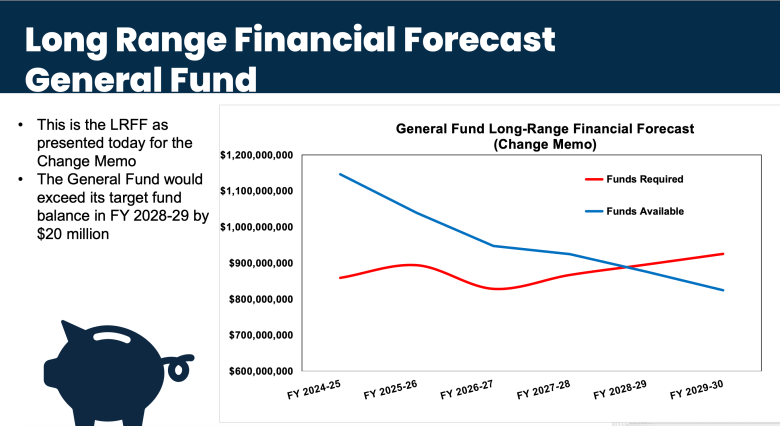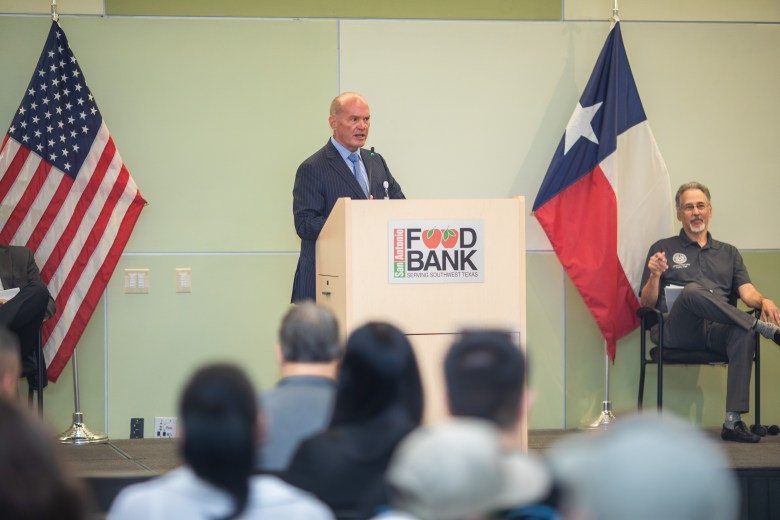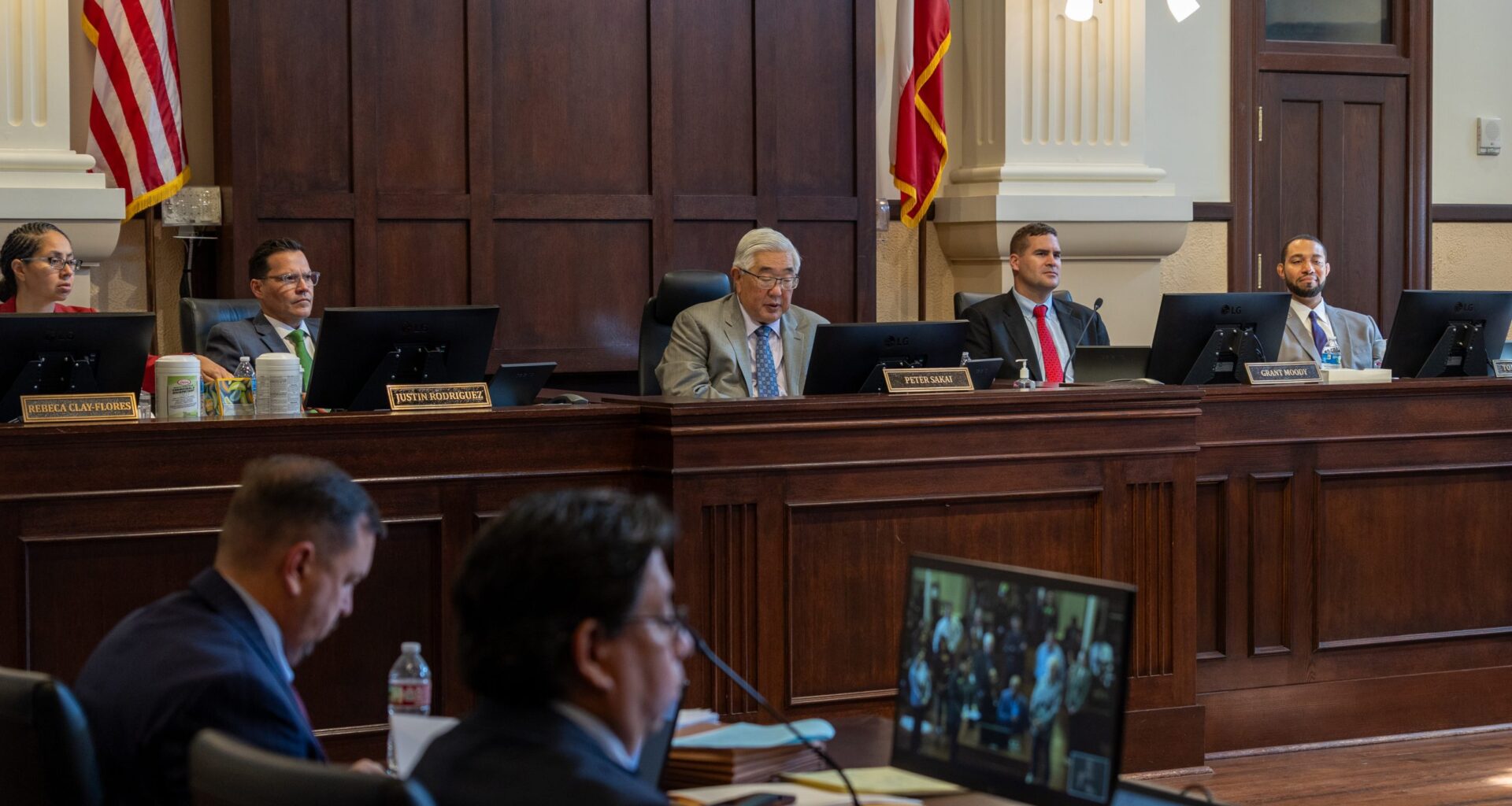Bexar County Commissioners approved a $2.8 billion budget for the 2025-26 fiscal year, including big investments in jail staff, automated flood gates and new technology for the Elections Department.
While San Antonio is making big cuts to avoid a tax rate increase this year, the situation is different in Bexar County, where property tax revenue from new development has helped offset waning valuations on existing property.
On Monday, county staff told commissioners they actually had about $14 million more in revenue than previously projected — money that will go toward night vision scopes, body armor vests, helicopter operational expenses and other supplies requested by the Sheriff’s Office, plus an increased cost-of-living adjustment for county employees, 3% instead of 2%.
That’s all without making major spending reductions, and while keeping the tax rate even from the previous year.
Still, county leaders acknowledge they face tough spending decisions in the not-so-distant future.
Federal pandemic relief will dry up at the end of 2026, and commissioners haven’t hashed out which ARPA-funded programs they want to discontinue versus moving into their general fund.
Popular examples include the SMART team that responds to critical mental health calls, and youth mental health programs the county helped set up within local school districts.
The county projects a budget “cliff” by fiscal year 2028 if changes aren’t made to bring spending in alignment with its revenue.

Against that backdrop, commissioners reviewing the budget changes Monday were divided on how to use the additional $14 million, with Commissioner Grant Moody (Pct.3) suggesting the county can’t afford the increased cost-of-living adjustments his colleagues requested for the county’s roughly 5,000 employees.
The Consumer Price Index suggests the cost of living in urban counties rose 2.7% over the last 12 months, and commissioners who make far more than the average employee approved their own 2% salary increase in August.
Their new pay scale was made public for the first time Tuesday, with commissioners making about $165,000 and the county judge making $209,000.
“We all know we’ve got to take care of our employees, but 3% is above the [Consumer Price Index], above the current [Personal Consumption Expenditures Price Index] — you name your favorite inflation measure — it is above that,” Moody said.
Commissioner Justin Rodriguez (Pct. 2) contended employees need that money because they’re likely to absorb more health care costs in the coming year. A preliminary budget presentation last month noted the county actually plans to save about $5 million by having employees pay more for prescription drugs.
Bexar County Judge Peter Sakai defended the final spending additions as smart investments in the nuts-and-bolts of county responsibilities: public safety, election management, the court system and employee salaries.
Meanwhile Moody said the county should be putting the extra money into its cash reserve, which has dwindled in years of lower-than-expected property tax revenue.
“We haven’t even hit the ARPA cliff yet, that will be at the end of next year,” Moody said. ” … Clearly, if we’re spending more than we’re taking in, that’s not structurally sound.”
 County Manager David Smith speaks at a town hall about a $2.8 billion dollar budget at the San Antonio Food Bank. Credit: Vincent Reyna for the San Antonio Report
County Manager David Smith speaks at a town hall about a $2.8 billion dollar budget at the San Antonio Food Bank. Credit: Vincent Reyna for the San Antonio Report
County Manager David Smith said that the county is still well positioned to pivot on its priorities, with many ARPA-funded contracts set to expire at the end of next year anyway.
Waiting on major spending cuts could also mean they’re made at a time when the county is in a different financial situation, he added.
“I wouldn’t have recommended a proposed budget that I didn’t believe was structurally sound,” Smith said. ” … Should we return to more robust revenue growth, then this graph would change significantly.”
Unlike previous years, this year’s budget discussions featured no major conflicts between commissioners.
It was approved 5-0 with little discussion at Tuesday’s meeting.
Sakai praised the money for election technology, saying the county was improving the voting experience for residents and staying in compliance with the law.
Commissioner Rebeca Clay-Flores (Pct. 1) praised plans to put $1 million into a contingency fund for nonprofits — should pending cuts from the Trump administration imperil basic services residents rely on those groups to provide.
“As we continue to see the federal cuts, we at the county level, the local level, are going to have to step up,” she said.
